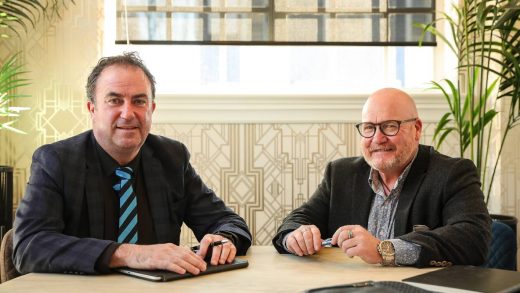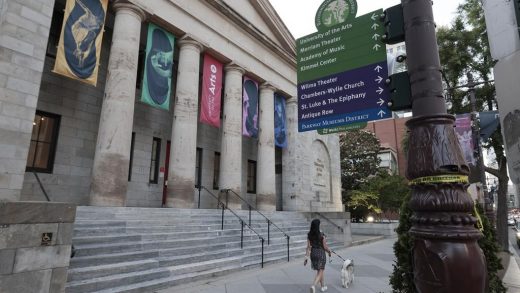
DAVID UNWIN/The Post
Michel Alkhouri from Navaa plays the oud at Classical on Cuba.
REVIEW: The fourth iteration of the innovative Wellington music festival Classical on Cuba showed why it’s rapidly becoming an institution.
Placing dozens of performers and ensembles into small venues on and around Cuba Street, and organising them into a tight schedule of 30-45min gigs, it’s exactly the kind of thing needed to bring classical music to new audiences and weave it into the fabric of everyday life.
A brief samples of the wares on offer began Saturday midday at the stylish wine bar Hanging Ditch, where Duo Tapas – violinist Rupa Maitra and guitarist Owen Moriarty – played a tight set of folk-inspired pieces. Their long familiarity with each other’s musicianship was evident as Maitra’s violin lines soared above Moriarty’s intricate finger-work. From unusually syncopated Bulgarian music to Bosnian works that were by turns defiant and nostalgic, the duo’s lines fitted into each other’s like high-quality self-assembly furniture.
Just an hour later, the Goethe-Institut on Garrett Street played host to another duo, this time pianists Beth Chen and Nicole Chao. Their first piece, an arrangement of Rachmaninov’s famous Vocalise, suffered slightly from an over-abundance of sound. On instruments that, like the Institut’s Ehrbar, produce great washes of notes, less pedal and quieter playing would have allowed greater clarity. But their second piece, Liszt’s Totentanz, was played with great brio and secure technique.
DAVID UNWIN/The Post
Duo Enharmonics players Beth Chen and Nicole Chao duet on the grand piano.
Alongside the extra-ordinary effects of striking and stroking the strings, the duo’s playing was powerful and well-articulated, and captured the jerky, tortured character of the ‘death dance’ of the piece’s title.
Just over the road, the early-afternoon festival continued at beer bar Rogue and Vagabond, where a good-sized crowd were wowed by virtuoso violinist Martin Riseley as he rifled through the back catalogue of Paganini and friends. Virtuoso playing can suffer diminishing returns – after a while, the impact wears off – but Riseley cleverly changed things up. His high-wire pyrotechnics had something hypnotic about them in Paganini’s Caprice No. 5, while Caprice No. 9, ‘La Chasse’, featured the drowsy, summertime feel of Vivaldi and a remarkable control of tone. Another standout work was John Psathas’s Gyftiko, a condensed, dancing, jagged piece of music played beautifully.
Mid-afternoon brought one final delight, this time at Te Auaha: innovative baroque ensemble The Queen’s Closet bringing to life the first of three mini-operas based on Ludovico Ariosto’s 1532 epic poem, Orlando Furioso. A fantastical tale of knights, sorceresses and magical transformations, the opera was superbly played, its sound-world anchored in the eerily beautiful tone of the cornetto and the sackbut.
The singing was a masterpiece of taste and accuracy, backed by a delightfully over-the top narration. Such riches placed before a Wellington audience – and all in an afternoon!


